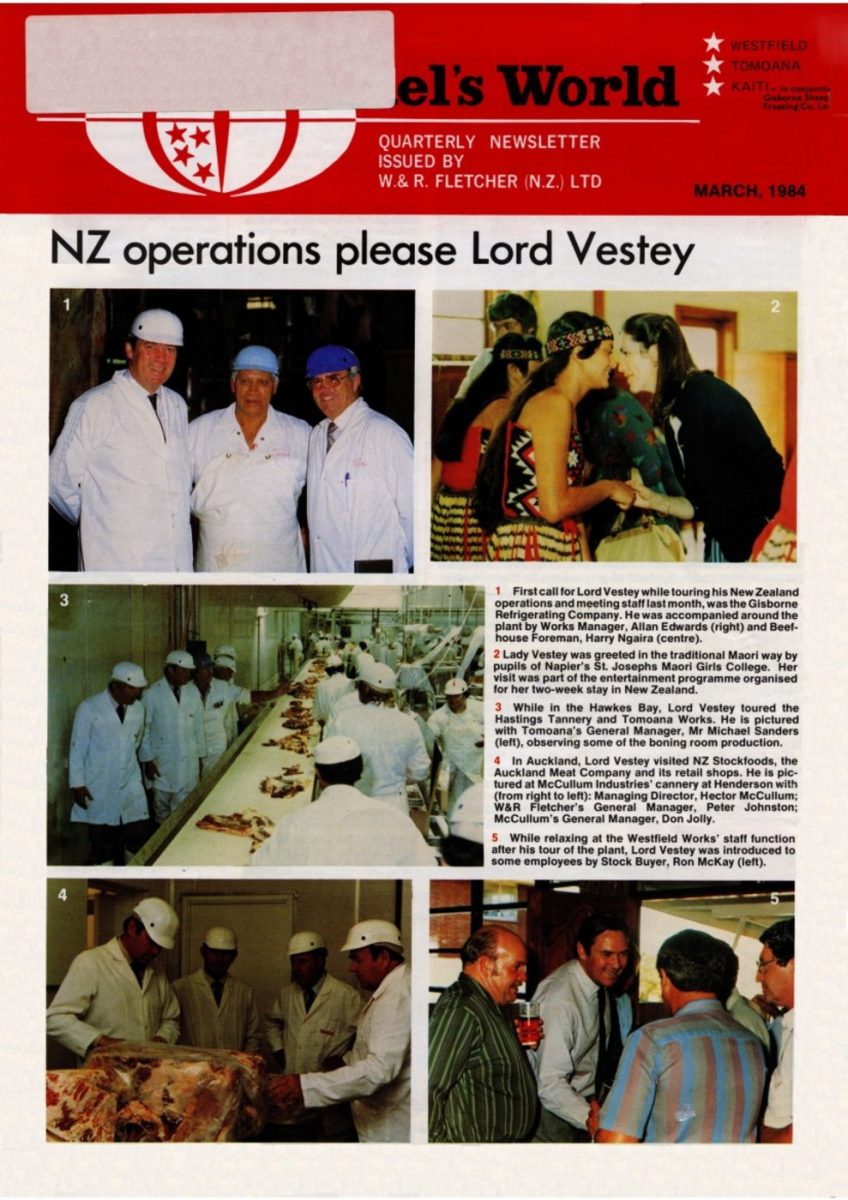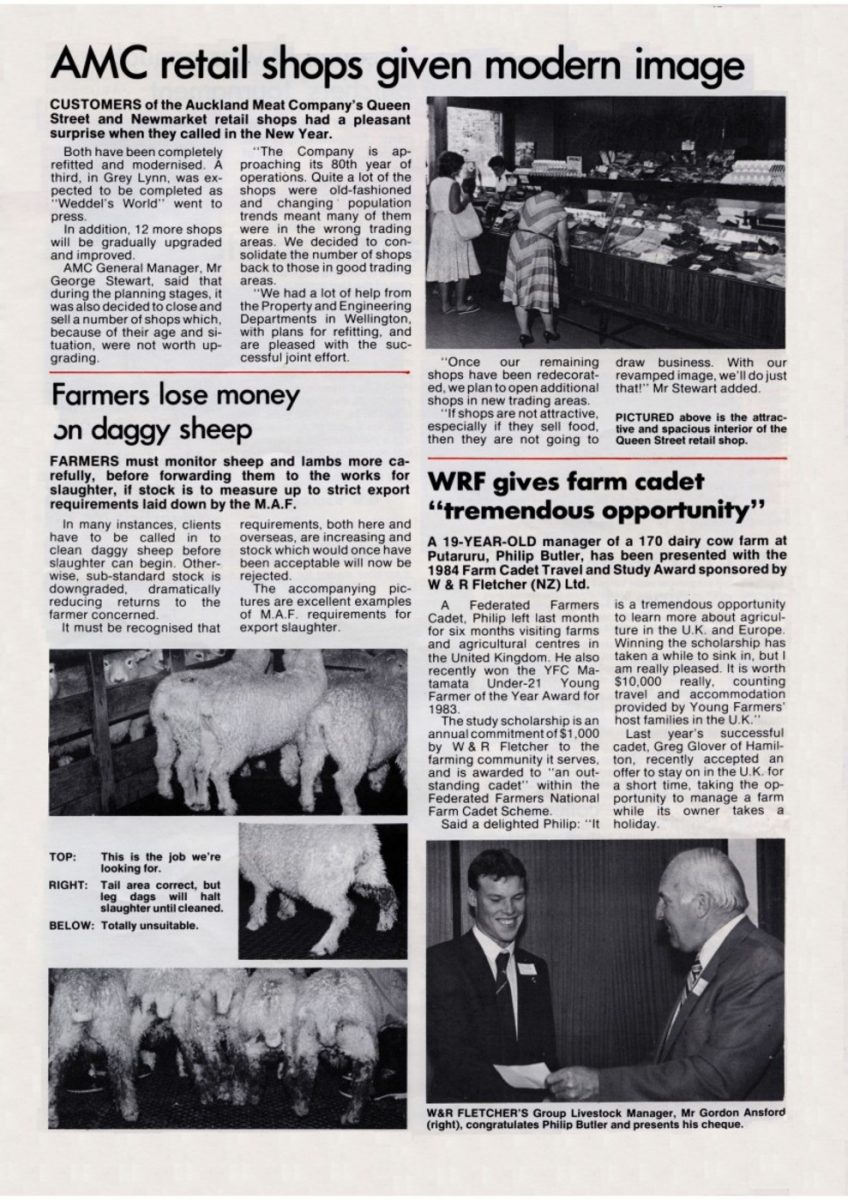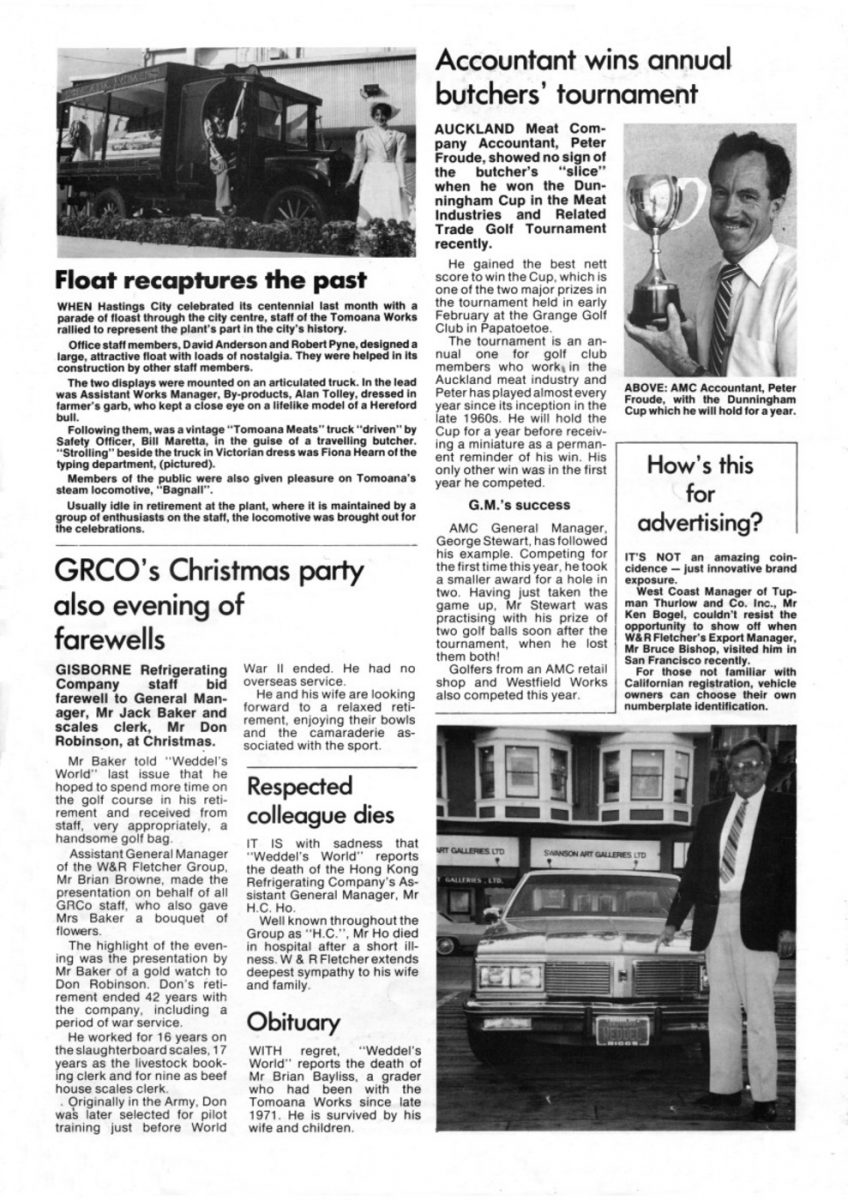French likely to accept f.p.l.
RETAIL packs of further processed lamb (f.p.l.) are likely to be accepted by French consumers in preference to the more traditional form of primal cuts.
So said Weddel Rotterdam’s Manager of French Sales, Mr Phillip Wakefield, who visited New Zealand for the first time recently on a familiarisation tour.
“In 1985, EEC regulations which currently require individual pieces of meat to be no less than three kilograms will change, lowering the minimum rate to 100 grams.
“We are very optimistic, as this is good news for further processed lamb,” he said.
EEC regulations also allow only three and a half thousand tonnes of New Zealand lamb into France each year. This is not difficult to sell, as Mr Wakefield explained: “Despite the sensitive nature of the French market for lamb, we are still able to ship cuts which are widely accepted by the French public.
“Beef and lamb fancy meats such as tongues, hearts and kidneys are popular with the French housewife, especially those which are now packed into retail bags printed in French. And nearly all lamb brains produced in New Zealand are exported to France. Further processed lamb is quite a new thing,” he added.
Which is why Mr Wakefield was particularly interested in visiting Westfield and Tomoana to view the process in operation.
Mr Wakefield was originally from the United Kingdom, but has worked within the Vestey Group in Spain, Argentina, U.S.A., France, Belgium and Luxembourg.
BELOW: Weddel Rotterdam’s Manager of French Sales, Phillip Wakefield (right), and Tim Parry of W&R Fletcher’s Export Sales Department.
New office
A new company Weddel Hellas, was opened in Athens, Greece, in the New Year.
What was previously a liason [liaison] office has become a full trading office.
Manager, Mr Michael Duck, was previously Weddel’s representative.
Mr Valtazanos of Valtazanos Brothers, who were the Weddel agents in Greece, will continue to act as a consultant to the new company and will retain his interests in it.
Computer system gives accurate information for farmer payment
TOMOANA Works has installed the most sophisticated process computer system of any works in the country.
W&R Fletcher’s Group Manager of production process control at Tomoana, Mr Mike Pownall, said the project began when work started on the new six chain mutton slaughterhouse and freezer complex. The task was to automate data collection on the slaughterfloor and the sorting of carcases following freezing.
To date, the system has produced some 24 thousand mob summaries, seven million carcase tags and sorted some 2.5 million carcases
“It allows us to track every carcase from the first dressing operation right through to palletising after freezing,” Mr Pownall said.
“We accurately identify the mob as it arrives, by stockyard personnel entering the mob number into the computer, as stock is presented for slaughter.
“The start of the mob is signalled by a chain butcher pushing a ‘first carcase’ button. Monitoring is carried out by computer room staff who check the mob counts.
“Accurate identification at the start of the mob is the key to accurate farmer payment.
“Once the start is identified, the automatic machinery takes over. Each skid, or hook, is permanently numbered and identifies a carcase.
“At the start of each dressing chain, the ‘mob’ microcomputer remembers the mob number for every skid that has passed in the last one and three quarter hours.
“As each carcase is graded, the microcomputer, and another in the grade console, associate the grade information and the mob number by using the skid number as a link. In this way, each carcase is allocated to a mob,” Mr Pownall said.
Accurate weighing is vital: “We use sophisticated microcomputer based electronic scales which have built in checks to ensure accuracy.
“The following day, after freezing, all carcases are automatically sorted. They enter the post-freezer sorting area at the rate of 50 a minute. At the entrance, each skid number is read and this is used to recall the grade allocated the previous day.
“A powerful minicomputer then controls the allocation of each carcase to one of 42 mechanised stacking rails. Each rail holds 40 carcases of the same grade and is emptied automatically, so the longest possible run of carcases of the same grade is obtained.
“Carcases are then fed out and bagged, removed from their skid and placed on a pallet. Selected carcases undergo the shrink wrapping process.
“Tomoana can now readily use any available electronic tool and move forward with great confidence,” Mr Pownall said.
ABOVE: A grader enters his assessment of the carcase’s fat cover into the grading console.
UNIQUE REPORT SERVICE
TOMOANA can now provide a unique service for farmers.
Farmer customers can get an extra report for their lamb and mutton mobs showing weight, grade and ear tag numbers for individual carcases.
This low cost service will help farmers select breeding characteristics to produce the heavier lean carcases that markets require.
Only Tomoana can easily produce this report, being the only works in New Zealand where each carcase is automatically identified by a unique number.















Do you know something about this record?
Please note we cannot verify the accuracy of any information posted by the community.